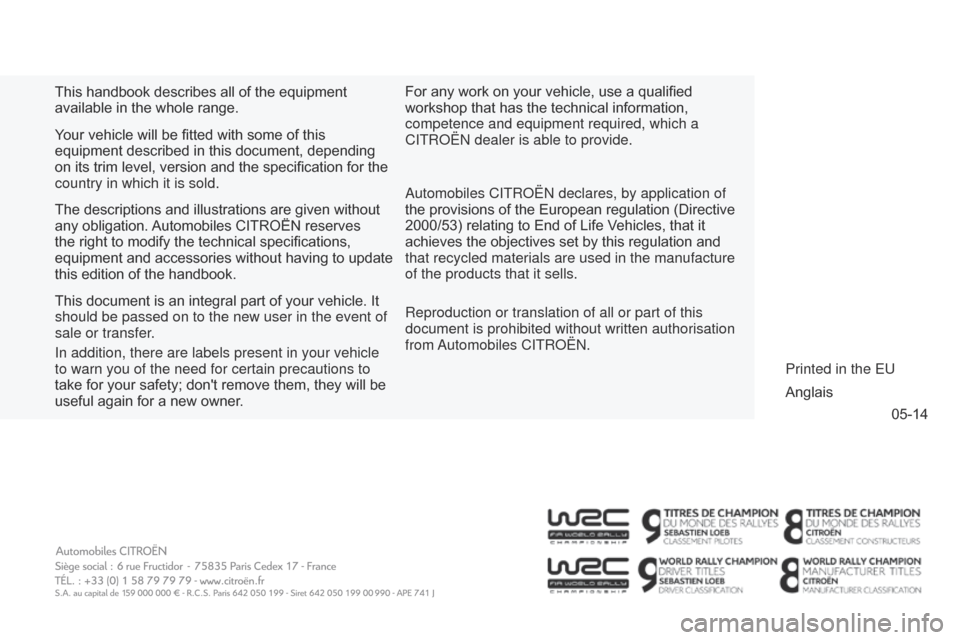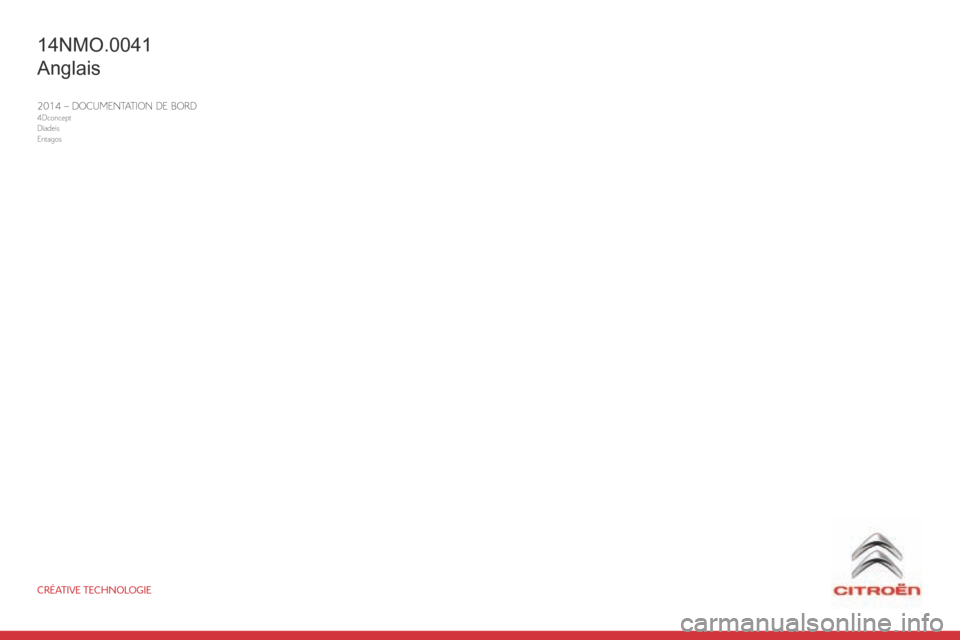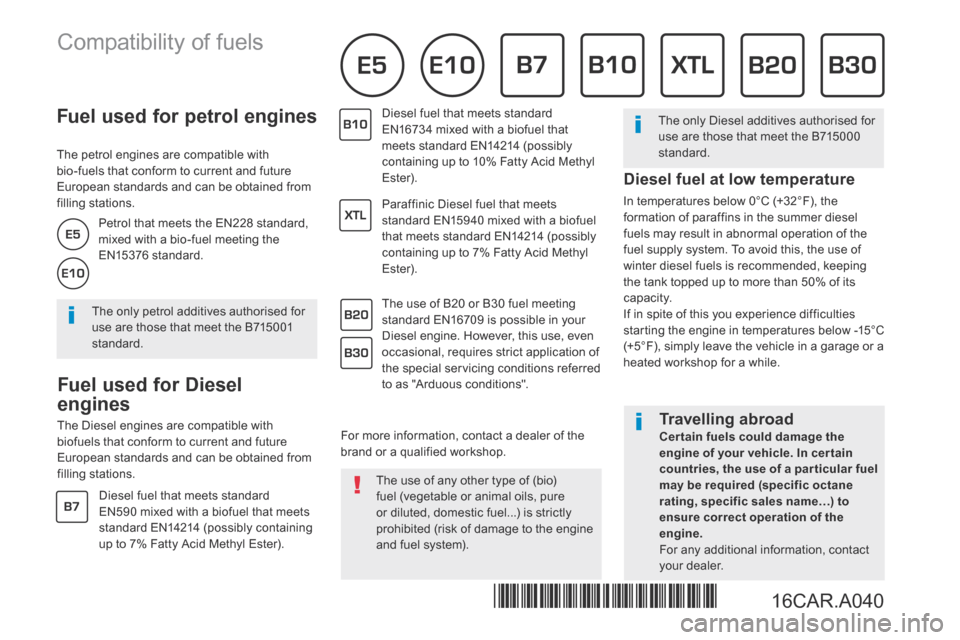05-14
This handbook describes all of the equipment
available in the whole range.
Reproduction or translation of all or part of this
document is prohibited without written authorisation
from
a
utomobiles CITR
o
Ë
n
.
Your vehicle will be fitted with some of this
equipment described in this document, depending
on its trim level, version and the specification for the
country in which it is sold.
The descriptions and illustrations are given without
any obligation. Automobiles CITROËN reserves
the right to modify the technical specifications,
equipment and accessories without having to update
this edition of the handbook.
This document is an integral part of your vehicle. It
should be passed on to the new user in the event of
sale or transfer.
In addition, there are labels present in your vehicle
to warn you of the need for certain precautions to
take for your safety; don't remove them, they will be
useful again for a new owner.
a
utomobiles CITR
o
Ë
n
declares, by application of
the provisions of the European regulation (Directive
2000/53) relating to End of Life Vehicles, that it
achieves the objectives set by this regulation and
that recycled materials are used in the manufacture
of the products that it sells.
Printed in the EU
Anglais
For any work on your vehicle, use a qualified
workshop that has the technical information,
competence and equipment required, which a
CITR
o
Ë
n
dealer is able to provide.
Fuel used for petrol engines
The petrol engines are compatible with bio-fuels that conform to current and future European standards and can be obtained from filling stations.
Fuel used for Diesel
engines
The Diesel engines are compatible with biofuels that conform to current and future European standards and can be obtained from filling stations.
The use of B20 or B30 fuel meeting standard EN16709 is possible in your Diesel engine. However, this use, even occasional, requires strict application of the special servicing conditions referred to as "Arduous conditions".
The use of any other type of (bio)fuel (vegetable or animal oils, pure or diluted, domestic fuel...) is strictly prohibited (risk of damage to the engine and fuel system).
The only Diesel additives authorised for use are those that meet the B715000 standard.
The only petrol additives authorised for use are those that meet the B715001 standard.
Petrol that meets the EN228 standard, mixed with a bio-fuel meeting the EN15376 standard.
Travelling abroad Cer tain fuels could damage the engine of your vehicle. In cer tain countries, the use of a par ticular fuel may be required (specific octane rating, specific sales name…) to ensure correct operation of the
engine. For any additional information, contact your dealer.
Diesel fuel that meets standard EN590 mixed with a biofuel that meets standard EN14214 (possibly containing up to 7% Fatty Acid Methyl Ester).
Diesel fuel that meets standard EN16734 mixed with a biofuel that meets standard EN14214 (possibly containing up to 10% Fatty Acid Methyl Ester).
Paraffinic Diesel fuel that meets standard EN15940 mixed with a biofuel that meets standard EN14214 (possibly containing up to 7% Fatty Acid Methyl Ester).
For more information, contact a dealer of the brand or a qualified workshop.
Compatibility of fuels
Diesel fuel at low temperature
In temperatures below 0°C (+32°F), the formation of paraffins in the summer diesel fuels may result in abnormal operation of the fuel supply system. To avoid this, the use of winter diesel fuels is recommended, keeping
the tank topped up to more than 50% of its capacity. If in spite of this you experience difficulties starting the engine in temperatures below -15°C (+5°F), simply leave the vehicle in a garage or a heated workshop for a while.
16CAR.A040*16CAR.A040*





